Are you creating your life or just reacting to it? This is the question Christine Kane would ask you.
Christine Kane is a singer-songwriter, noted for “strong lyrics” at Billboard.com. Christine, also, performs in many other roles: as a life coach and mentor, retreat leader, and creativity consultant for the Federal government. She is the author of The Complete Guide to Vision Boards. (Available as free download on her website.)
From coffee-shop singer to nationally-known creativity advocate, Christine lives the creativity she talks about. On her website and in her songs and articles, Christine shares her own challenges, triumphs and realizations in life, the ongoing process of living actively, and being creative rather than reactive.
Christine shares her experiences and practical tips in this interview about the process and aspects of the creative life.
***
1.I would like to start with one of the first statements that I read on your website and, later, in your book, The Complete Guide to Vision Boards. Could you explain your statement: “I’m not your typical success guru”?
I think when it comes to any kind of discussion on the idea of success, a lot of us creative types, a lot of women, dress it up in a suit and tie. They see Jack Canfield on the cover of his book, Success Principles. You know, Stephen Covey, and the idea of success often comes fully equipped with the belief that you have to be driven. So, the reason I put that statement there is because I have learned so much from a lot of the principles that these people list and I have been able to take them and apply them in a creative way to my life and in a more authentic way, I think, than a lot of the women I coach. I like to make sure people understand that I am not coming at them with that old “1980s success” mindset; a lot of us still roll our eyes at the idea of that. You can still do this. You can still move from a deeply successful place without that drive.
2.It seems that you have more of an original take on the success theme. Did this encourage others to follow your advice and to sign up for your workshops?
Well, I don’t look at it that way. The way I look at it, and the way I approach how I do what I do, is there are people who really will be a great match for success. My point of view is—let them. I call it self-qualifying. If I put it out there like that, it’s going to turn off the people who want the more driven success. And the way that I look at it is that it lets people decide at that point. Whenever I write anything, it’s writing that lets people decide whether or not they want to come for a closer look. Instead of saying: “Everyone’s gotta work with me” or “Everyone’s got to understand these principles” and “Everyone has to do this”—I just look at it as, come closer if you want. I can totally change your life if you’re meant to be the person I work with. I look at it deeper than just hitting people hard from every angle.

“I don’t look at creativity only as, okay I write a song, you paint the painting. I look at creativity as a way of living life.”
3.You are a busy creative person with your music, mentoring, teaching, and coaching women about how to Uplevel their lives and careers. Our readers may not be familiar with your Uplevel concept. Could you please elaborate on this quite positive approach?
Yes, sure, absolutely! When I was a song-writer, I was starting to do quite well with it. Yet, a lot of stuff in my life, in my finances and in the business side of being a song-writer, was not going so well and I was still getting varied reactions. I call reactive the opposite of creative. I don’t look at creativity only as, okay I write a song, you paint the painting. I look at creativity as a way of living life. So, I started to realize that it wasn’t doing me much good to be a great song-writer if I couldn’t get my crap together. So, what I started to do is I put together what I thought were some of the primary creative principles in writing songs, in changing lives.... The elements of a very successful life, authentically successful.
4.As your career has moved forward, you have emphasized in your creative principles that individuals need “to take action,” “to do things in the world.” You have attracted entrepreneurial-minded people with your non-traditional approach. Do you think it appeals to people when you say, outright, “Because I’ve got a creative brain, I do things a little differently.” Christine, could you expand upon this?
Well, at its core, I think that we live in a world that’s changing over to a more integrated model of brains.
5.You have expressed concern with the limiting focus of some brain theories, thinking that strict right/left-brain divisions have short-changed creative people.
Yes. One of my gifts as a coach is leading people past the confines of being labeled as solely one type of person or another.
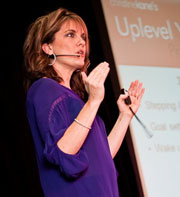
“One of my gifts as a coach is leading people past the confines of being labeled as solely one type of person or another.”
6.In your song, Virginia, you explore how the average woman can find creativity within her day-to-day reality. To me it sounded like you are coming up with an anthem type of song for women, almost a role-model song.
Yes, a lot of my songs are that—the success word comes up for women who come to my shows—I ended up talking to them so much, their voices just started to play.
7.Do you think you were you born with a “creative brain”?
Well, looking back… I come from a very academic family. I don’t think that I was ever told, “Oh you know what, you’re an artist!” I was just always told that I wasn’t doing it the way others were doing it, wasn’t as smart as this person in my family, or that kind of thing, so I had a lot of stuff to work through. So, to say, I was born with it, I almost hate to say that. I think we are all sort of born with it; it’s just that we have to uncover it… We have to get some stuff out of the way, so that we can see through to our essence….
8.Was your creative brain molded by life experiences or people?
The truth about all of us is that, our essence, whoever we are, of course, we are all born with it. But often, we were shamed out of it or told there is something wrong with us, so we start contorting ourselves to be something else.
So, I avoid the whole idea of “If I was something all my life” or “If I wanted to do it all my life.” Well, maybe it was, but, for the most part, I never believed in myself until I started actually pursuing it.
9.Some of your new terminology, new way of looking at things is appealing to many who are not fitting the mold or finding their success in traditional ways. You have come up with the term “Conscious Creative” for some people as you have written in The Complete Guide to Vision Boards. Does that term still apply to people?
Oh, yes, I just think there are so many angles to talk about this. I see that in creative people, especially artists (and I don’t think that you have to be an artist to be a creative person), but I think people who live from that creative place in their lives, it’s sort of running parallel to a spiritual awakening, and I also think the artist has a lot to work through. The artist creatives are becoming more fearful. They are waking up because it’s time. There’s a necessity to it, so I call it conscious creative.
10.You are really helping people discover their own essence, I think, and maybe that is why it is a kind of spiritual awakening?
Yes. I think the more we look at what is happening around the planet, we can get really cynical at all these people making money on self-help books, but I don’t think that’s what it is—it’s all these people wanting to wake up.

“It is interesting to see when effortlessness works in our lives.”
11.In your book and your 2006 article, you provide examples of how visioning can occur very naturally in an everyday context. Could you share the story of your house with us?
I was in a mastermind group that I had put together with two other women. And one day, we got together and we created vision boards. I had never heard of it, never heard of the idea. To me, it was just huge stacks of magazines, glue, poster board, scissors, and we just sat and talked and created what we wanted our lives to look like. And I didn’t really take it seriously. It was hard when you’ve never really dreamed or let yourself dream to say, “Okay, yes, here’s what I want.”
At the time, my husband and I were living in an up-and-coming area that was not up-and-coming. It was a fixer-upper kind of house. It was the best I thought I could hope for because I was a struggling artist in my life at that point. I started writing. A lot of stuff happened in our neighborhood when my husband and I just said, “This is not who we are. This is getting very, very hard to live here.”
So, on a day we did the vision boards, I saw a picture of a house; it was on a body of water and there were a lot of lights in the windows, shining on the water. The ad said, “Beauty lives here” and I crossed out the word “beauty” and I wrote, “Christine lives here.” I didn’t even think about it and, at one point, a few weeks later, my husband and I called a realtor and said we wanted to move, to live downtown; we liked our house, but just didn’t like the neighborhood. So, one day, she called us about a house... We headed over, and the minute we walked in, we fell in love with it. It was on a river. It was contemporary. It was beautiful and it was found so effortlessly. We decided to take the risk. I call it “making decisions from where you want to be, not from where you are” and we did it. We bought the house.
The first thing I want to say is that it was effortless. I have never had to struggle with payments or anything. It was just completely perfect, completely perfect!
A few months later, I was unpacking in my office and I found my vision board and, you know, it’s the classic story. I saw the picture of the house and it was on the water and I said, “Oh my God.” It was so close to looking like my house and I hadn’t really considered how effortless visioning could be.
Now, that is not to say every single thing I have put on a vision board has come to pass. You know you always hear that story—“So, does that mean if I put Brad Pitt on my vision board...?”
It is interesting to see when effortlessness works in our lives.
12.In your book, you also describe how you came to a point where you wrote: “Plain and simple, I just got tired of the unhappiness that cynicism creates. So, I decided to experiment with all kinds of spiritual and success principles.” Could you tell us about that search?
First of all, I enrolled in prosperity workshop with a shaman; it was in a workshop room at the church—the idea was to sell. On the way to it, I realized it was antithetical to everything I had been taught. I was from an academic background and I was all about “I’m an artist. I’m cool.” I don’t do stuff like this work with the mind. Healing is fine, but don’t tell me to change my mind because that kind of stuff doesn’t work. I got so much from going to that workshop; it was unbelievable because I came to realize, if nothing else, if I am happier, it is worth it. That’s worth everything.
Of course, that’s what started to happen.
Now, I think that healing and success works in combination. There is kind of a holistic quality to it. I think that’s part of the reason people buy into it, The Secret DVD is just one component; it is not the whole picture.
When I began working on my journey, this mindset kind of thing, I had already done a lot of healing work and other stuff, behind the scenes. It was almost like this was the icing on top of it; I had to start changing the way I thought about things. I specifically call it the “default position.” My default position was often, I’m Eeyore. I would say things like “What did you expect?”
So, I really found it was almost like something physical. It was almost like kicking a door that always opened back into the same part of the yard every single day of my life, then ripping it out of the wall, moving it to another wall, installing it and opening it up into a new place. It was so physical to actually start changing how I thought. I’m still working at it. Old stuff still comes up all the time, but it’s not as strong, it doesn’t overtake me as much.
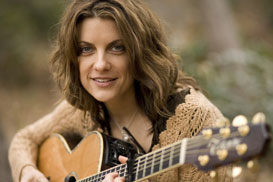
“I will soak up anyone’s experience because I think that we all are here to give each other a leg up.”
13.From your personal perspective, what have been the greatest influences on your creativity?
I would say the first thing is taking action, doing it, even imperfectly. I remember getting all tangled up, for the longest time, about the mental concepts about how to write a poem, choruses and verses and rhymes and meters, until I actually sat down and gave attention to a song. It was a song called “A Pocket full of Pennies” and I was sitting on the floor of an apartment I had rented in Asheville. Before, when I started writing songs, I had to work at it. Now, this was something where I was just sitting down, every night, with the songs and it evolved, and, again, it was this great idea of effortlessness.
It was work, but not this mental gnashing of teeth kind of work; it was just being in the present as much as I possibly could. So that, honestly, has been one of the biggest influences. It has been stunning to me how the idea of attention applies to everything.
Another influence comes from a lot of the authors out there who write about creativity. I’ve learned every bit as much from Bill Watterson writing about Calvin and Hobbes to Jerry Seinfeld talking about comedy to Stephen King writing about writing to Brenda Ueland in her book, If You Want to Write: A Book About Art, Independence, and Spirit. I will soak up anyone’s experience because I think that we all are here to give each other a leg up. What works for one person might not work for someone else, yet, it might work for you.
I think we all are influenced by all of them. Now, they help me refer people to different ideas and I can quote things; I can say Stephen King—this is what he does. I think it really awakens people because I think what we are all looking for is permission to do things our way.
So many people are wrapped up with doing things right, and my thing is about just doing it. Taking action, not doing it perfectly. Show up. Instead of wondering what you are going to wear to the Academy Awards, just sit down and write the damn screenplay. Most people are wondering what on earth they would wear. Just be prepared. Do your hour today. That’s all. It is not an original idea. It comes from Natalie Goldberg and Julia Cameron, but it happens to work.
14.Based on your experiences working with so many people, what are the most negative impacts on creativity? What are the one or two tendencies or characteristics that detract from people expressing their creativity?
Perfectionism, any kind of idea of how it should look, so for me, when I first started, all I wanted to be was Mary Chapin Carpenter or Joni Mitchell or any of the only women I had seen out there because my songs always kind of fell short. Yet, I kept writing and I don’t know what kept me going, in spite of that, because I just knew I had to speak, take an action. So my own voice started coming out and my own language started coming out and that discovery was huge. If I had let myself get stuck with the idea what it could be like, then that would have robbed me of the practice of it.
Self-talk—negative distractions also detract from creativity.
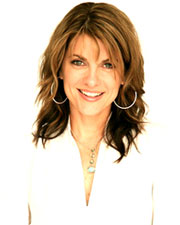
“So many people are wrapped up with doing things right, and my thing is about just doing it. Taking action, not doing it perfectly.”
15.Writers, song-writers, visual artists, sometimes struggle. Their creative instinct is lacking a spark. Could you share some advice to re-start that creativity?
Creativity is an active activity. Be present. Show up.
16.Looking back on your career, Are there two or three individuals who have impacted your life, your creativity?
I would have to say I tend to draw from a variety of influences including writers such as Natalie Goldberg, Julia Cameron, and Brenda Ueland.
17.In your work, you employ various social media tools. In your opinion, what is the impact of social media on creativity?
Overall, with social media use, it becomes a conversation. It is empowering with all the directions it opens.
18.Do you have any cautions about social media and creativity?
With social media we are opened up to more opinions. It is important to stay inner focused.
19.If you were given the chance to make a huge change in the world of today, what would it be?
Well, I think back to a Commodores song and I think it would be nice to see a world full of smiling faces.
20.What recommendations would you make for those of us who are trying to maintain a balance between work, family, writing, and personal time?
I think it is important to remember, as a creative person, you don’t have to be a victim. When writing, be sure to maintain some definition. Be specific.
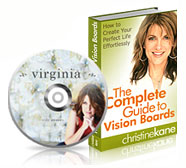
Readers, be sure to stop by Christine’s blog and check out her articles including: “How to Make a Vision Board” and “21 Ways to Be More Creative.” You can sign up for her weekly newsletter and download a free copy of The Complete Guide to Vision Boards.
***
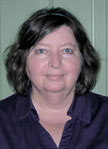
Author Bio:
Patricia Anne McGoldrick writes poetry, essays and reviews. Living in Kitchener, Ontario, Patricia has been published in many publications, including the Christian Science Monitor, the Irish American Post, and WOW.
-----
Enjoyed this interview? Check out these related interviews on WOW!:
20 Questions Answered By Natalie Goldberg
The Creative Life: Interview with Julia Cameron